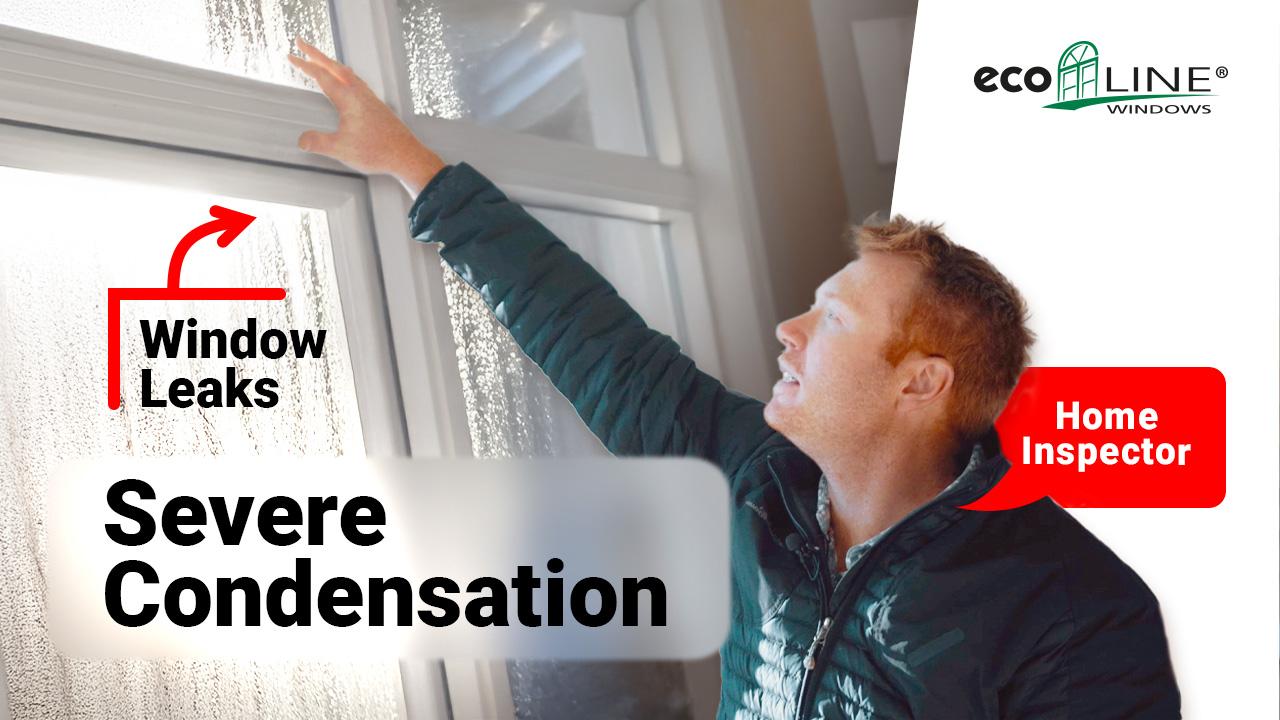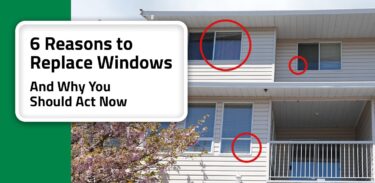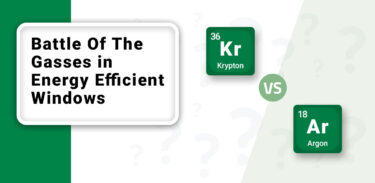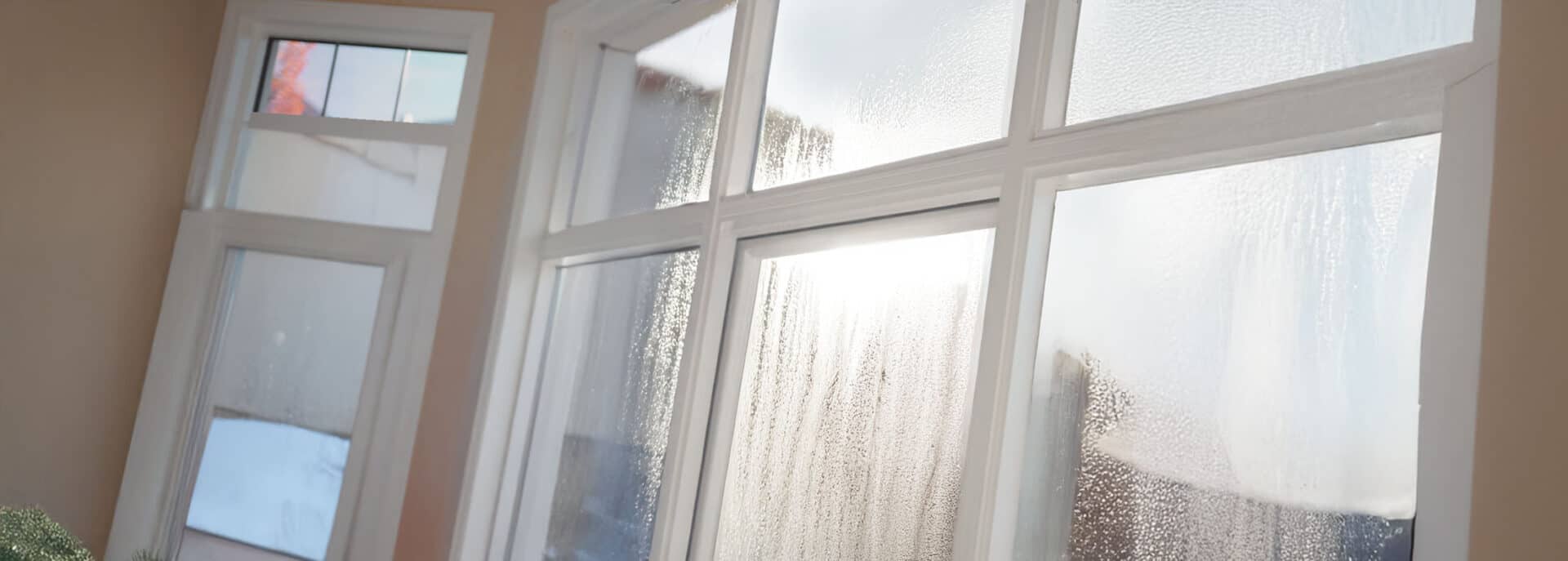

Foggy Window Repair vs. Full Replacement: What’s Better?
Oct 15, 2025
6 min read
782
As their old windows wears out and become less energy efficient, most homeowners are faced with the question whether they should replace their windows or try to repair them.
It is true that with most problems, there are ways to extend a window’s life with repair. However, you have to understand that any repair may improve a window’s performance, but not necessarily restore it back to the original levels.
A common problem windows face as they begin to age is sealed unit failure. A sealed unit combines the multiple panes of a window into one, sealing the moisture out. Older sealed units are usually filled with air, while modern options have gas fills for improved energy efficiency.
When a sealed unit fails the air can travel in and out of the space between panes, making your windows less efficient. This is usually manifested by moisture or condensation on the inside of the glass.
Is Your Window’s Condensation Good or Bad?
Most often when homeowners see condensation on windows they think that the sealed unit has failed. But in reality, the more efficient a window is, the more likely it is to create condensation in colder weather, as the difference between the outside and inside temperature is more severe.
So how do you tell condensation from sealed unit failure? Simple:
- If the condensation is on the outer pane of the sealed unit, this is absolutely normal. You should be able to wipe this kind of condensation off.
- If the condensation is on the inside of the sealed unit, and you can’t wipe it off, that means air is allowed to penetrate the unit, and the seal has failed.
A sealed unit is the most technologically complicated part of your replacement windows, so when sealed units fail, the energy performance of your windows drops significantly as well. One of the popular aftermarket repairs for failed insulated glass units is the installation of a fog out system.
When fog out is installed, two small holes are drilled in the outer glass pane. A defogger vent is then put in on the hole. As the air heats up and cools down it doesn’t simply form as moisture on the glass surface, but rather evaporates through the defogger vent, leaving the inside of your window more dry and at a more balanced temperature.
Is Window Defogging a Good Repair Option for Failed Sealed Units?
Although most fog out companies will assure that the repair restores a window’s R value back the original, it is important to understand what exactly that means.
- R-value is a measure of conductance and resistance in any product. A window with high conductance will lose heat quickly. Although the R value and U-factor are similar measurements, the window industry relies mostly on the U-factor to assess a window’s performance.
- U-factor takes into account more than conductance. It also is affected by the airflow (convection) around the window and the emissivity (radiated or reflected heat) of the glass. So while your window defogging won’t make your unit overheat in the summer, and lose less heat in the winter, overall it will most likely not perform as well as it did when the insulated glass unit seal was intact.
A foggy window repair does not fix the seal, it merely fixes the issue with moisture fogging it up. This fix is especially not worth it if your sealed units came with a gas fill, as after it failed the unit probably leaked the gas out.
Why Full Window Replacement?
What’s the best solution for failed sealed units? Unfortunately, the only proper way to restore the full performance of your windows is with a complete replacement. While defogging or sealed-unit swaps may appear to be cheaper fixes, they don’t address the underlying issues. The frame and sash around the glass are often just as worn as the glass itself, which means air leaks, drafts, and poor insulation can remain.
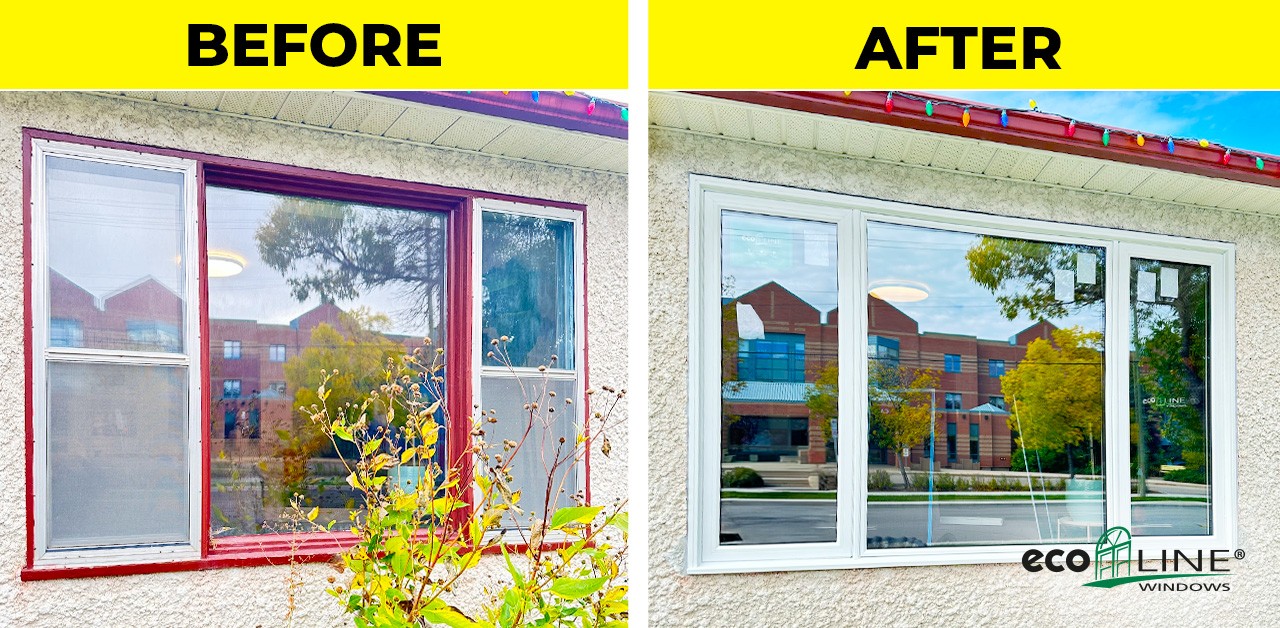
With full window replacement, you’re not just getting new glass but upgrading the entire system. Modern frames and glazing work together to provide benefits that partial fixes cannot match:
- Maximum energy efficiency – advanced insulated frames combined with triple-pane low-E glass reduce drafts and heating costs.
- Better protection – new drainage systems and weatherstripping prevent leaks, moisture, and condensation damage.
- Improved comfort – tighter seals and noise reduction make your home quieter and more consistent in temperature.
- Curb appeal & value – new windows refresh your home’s appearance and increase resale potential.
- Peace of mind – comprehensive warranties cover both glass and frames, ensuring long-term reliability.
Instead of patching problems one by one, full replacement offers a lasting solution that saves money, protects your home, and guarantees performance for years to come.
Top Tips to Consider Before Buying New Windows
When you are shopping for new windows, try to avoid seal unit failure problems from the start. Look for companies who’s windows are ENERGY STAR rated and/or CSA certified. Sealed unit warranty should also be a big factor when you are deciding on a local window company. All companies offer insulated glass unit warranty, ranging from 10-25 years.
If a company’s windows are ENERGY STAR rated that number is going to be closer to the twenty-year mark. And while some companies are quick to make the warranty claim in order to sell you their windows, not all of them will still be there for the whole term of your warranty. Also the labour warranty on sealed unit failure differs from company to company. Because it is considered skilled labour, some companies don’t offer actually replacing the sealed unit as part of their warranty.
At Ecoline Windows, our sealed units are some of the best performing on the Canadian market. All our vinyl windows are custom made for your order, are ENERGY STAR rated and CSA approved. We offer a 25 year warranty on our sealed units and labour.
1750 Coast Meridian Rd #102,
Port Coquitlam, BC V3C 6R8
100, 17866 106A Avenue,
Edmonton, AB, Canada,
T5S 1V3
3307 Dunmore Rd SE #12,
Medicine Hat, AB,
Canada, T1B 3R2
2081 Merivale Rd #201, Ottawa, ON, Canada, K2G 1G9
by appointment only
108, 55 Akerley Blvd, Dartmouth,
NS, Canada, ВЗВ 1M3





